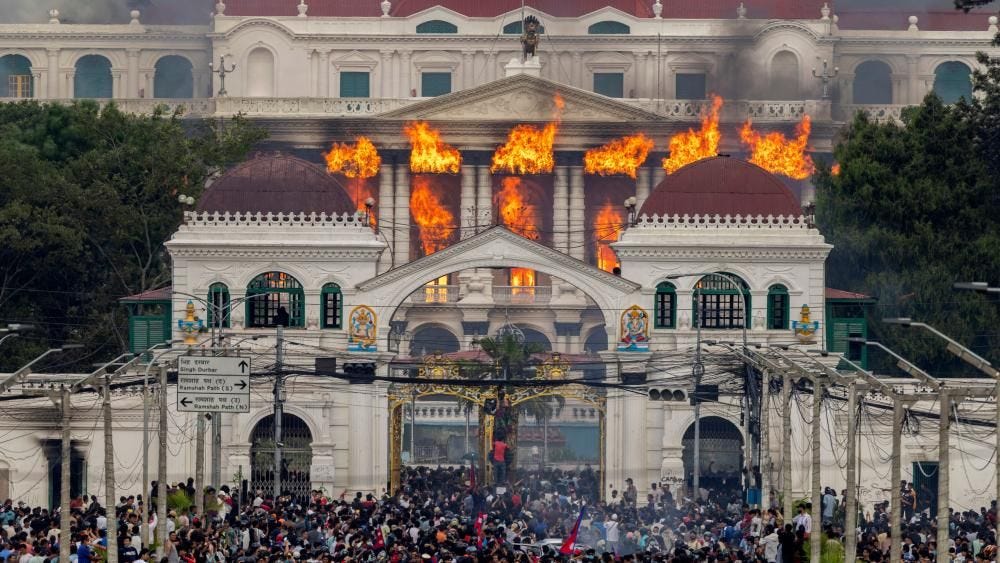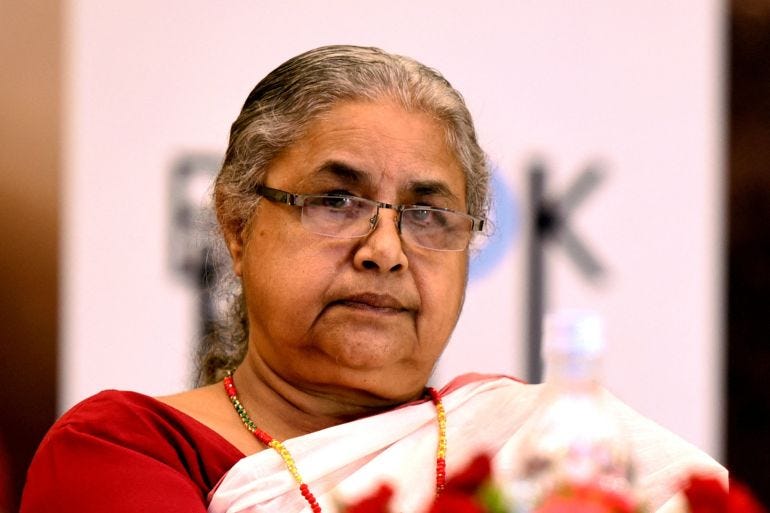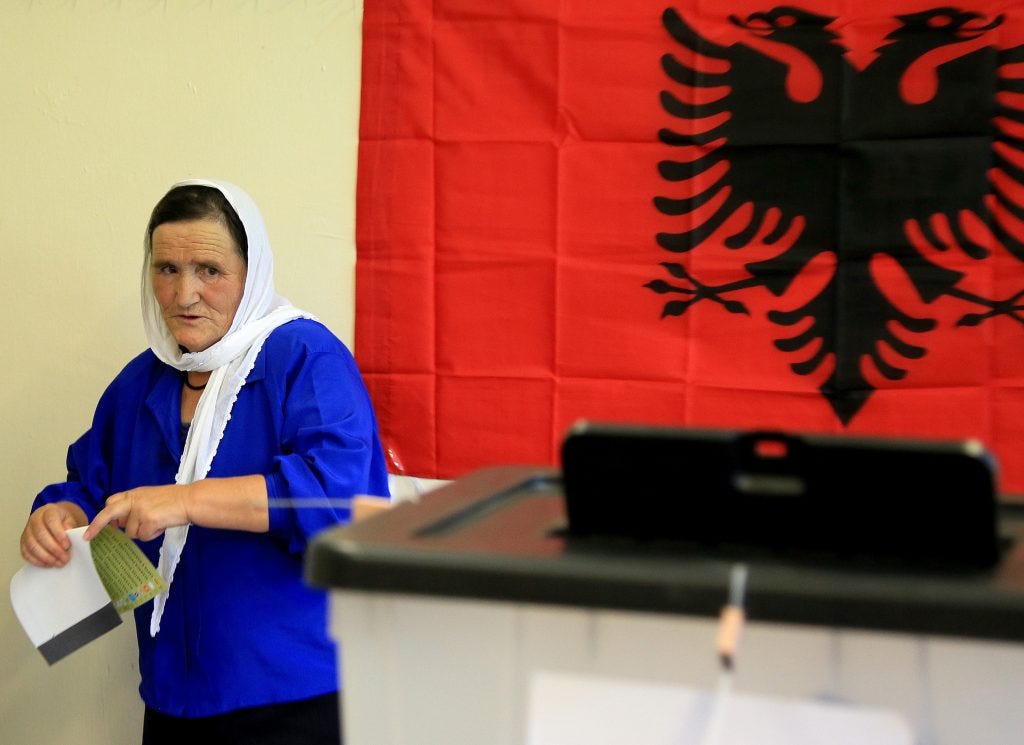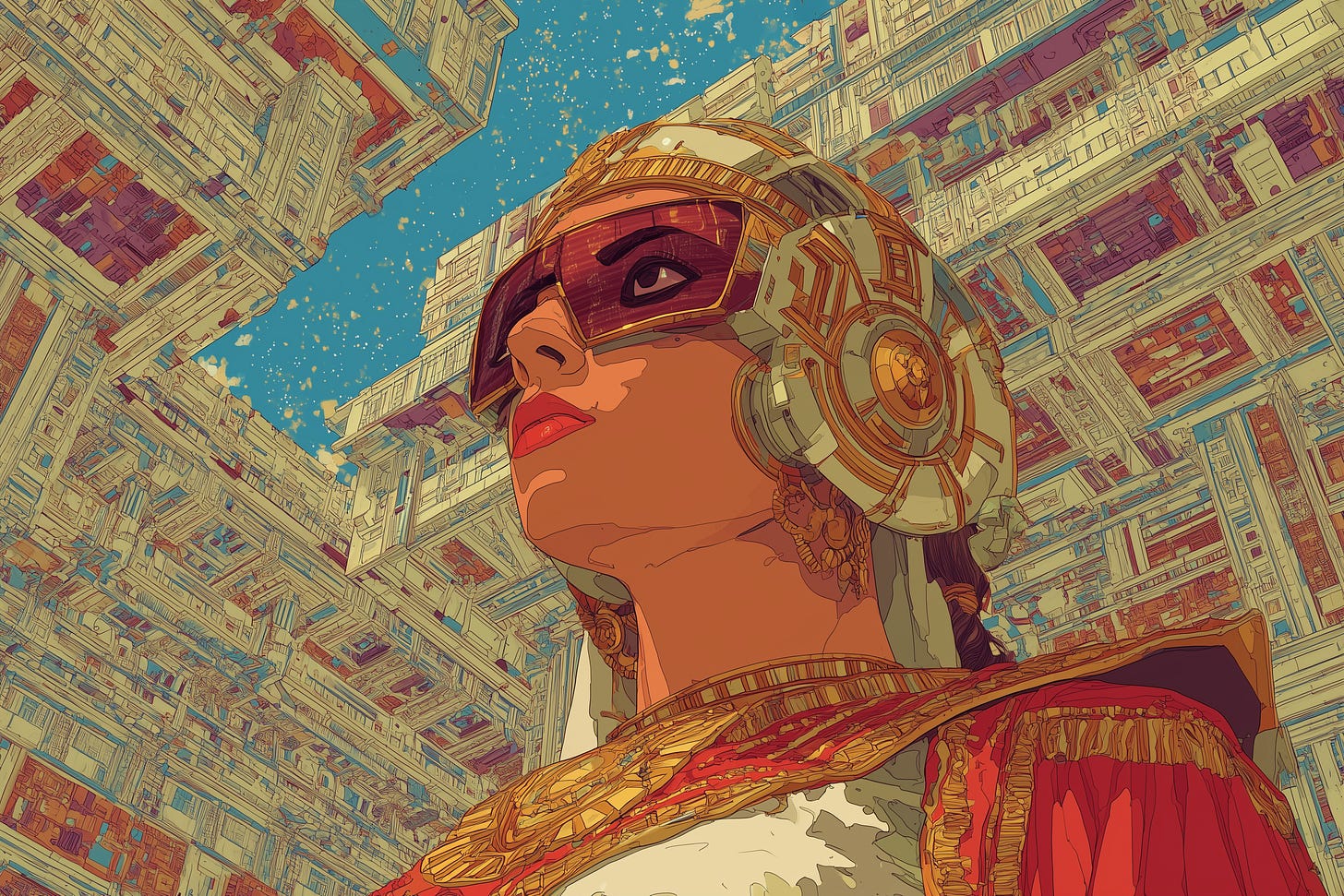Discord Democracy: Decentralizing Diasporas and Digital Diplomacy
Innovative coordination tools are transforming decentralized governance in digital and physical spaces. Insights from case studies in Nepal and Albania.
The State of Democracy
In 2024–2025, democracy is stress-testing itself. Let’s skip the usual G7 loop and scan Europe and Asia for patterns the front page misses: contested legitimacy, harder state power, and unexpected experiments.
In Romania, mass protests erupted after allegations of election annulment and partisan court rulings – citizens took to the streets, refusing to accept that voting results could be erased by power brokers. In Taiwan, a high-stakes recall vote made headlines: an electorate swiftly rejecting a major mayor showcased that even institutional trust is now subject to direct repudiation. Meanwhile in the Philippines, renewed uprisings over corruption and impunity exposed how elections without accountability turn hollow.
Authoritarian gravity still pulls with force. Belarus remains a case study in systemic repression: jailed opposition, exiled dissidents, and an alternate-passport underground dubbed the “New Belarus” movement underscore how citizens resist being erased. In Estonia, the 2025 municipal elections introduced a disquieting shift: for the first time since independence, many non-citizen residents without Estonian citizenship, were excluded from voting at the local level. Their digital democracy model is excluding non-locals.
These fissures aren’t isolated; they point to a deeper shift: the legitimacy of states is increasingly challenged, not only pressured externally in global geo-politics, but also from within. When rules break, institutions betray, social contracts decompose, participation is hollowed out. As an emerging alternative path, people are turning to networks, diasporas, and algorithms for new foundations.
It is from this moment of fracture that Nepal’s Discord uprising and Albania’s diasporic voting and AI-augmented state experiments begin to make sense - not as futurist oddities, but as emergent responses to failing governance norms. Here, we’re going to explore voting and governance as two areas ripe for disruption with crypto and AI, respectively.
Voting
Nepal’s Network Coordination
Nepal’s political landscape was upended in September 2025 by an unprecedented youth-led uprising coordinated largely online. After the government of Prime Minister K.P. Sharma Oli imposed a sweeping ban on social media apps (including Discord) to curb dissent, tens of thousands of Nepali youths took to the streets and to Discord itself to organize protests. A brutal crackdown left at least 70 dead and ignited nationwide fury, with protesters torching parliament and other government buildings in Kathmandu (the “122-year-old” prime minister’s office and multiple ministries were burnt down).

The Oli government collapsed under the pressure, and the army stepped in to restore order and negotiate an interim government with the protesters. In the chaotic power vacuum, Nepal’s Gen Z turned to a Discord server to choose the country’s next leader – a radical experiment in cloud democracy. Organized by a youth group called Hami Nepal (with ~160,000 members), more than 10,000 young Nepalis – including many diaspora abroad – flocked to a “Youth Against Corruption” Discord channel to debate and nominate an interim prime minister, with another 6,000 watching via YouTube livestream. Over two days of heated, informal yet serious deliberation (memes and anime avatars intermingled with constitutional talk), the participants held virtual polls on their phones to select a consensus candidate. “We were learning as we went,” one 25-year-old protester noted, describing how they crowd-sourced legal advice and policy questions in real time.
This open debate and vote on Discord – essentially a leader elected on a chat platform – is something no electoral democracy had seen before. Ultimately, the Discord community coalesced around Sushila Karki, a 73-year-old former Supreme Court Chief Justice, as the figure with the credibility and independence to lead a caretaking government. She was duly sworn in as Nepal’s interim prime minister, becoming the country’s first-ever female PM (albeit in an interim role). This crowdsourced selection was “a revolutionary counter to the traditional practice of politicians choosing leaders behind closed doors,” supporters argued.

Backers called the Discord poll more transparent and egalitarian than backroom deals among elites. Indeed, instead of power-brokers dividing the spoils, an open network of citizens on the cloud collectively decided the nation’s leadership – a remarkable instance of a network community asserting political legitimacy. However, this Discord-driven democracy was not without challenges and risks. The ad-hoc process was chaotic: volunteer moderators struggled to manage the flood of voices, and questions arose about how representative or secure an online poll could be. Critics noted that framing it simply as “PM elected on Discord” risked trivializing the very real sacrifice and grassroots anger that fueled the uprising.
Yet, it underscored a profound shift – trust among Nepal’s young generation had moved away from traditional institutions to self-organized digital platforms. When formal systems failed, a web2 app like Discord filled the void, however imperfectly. This could have been a true crypto moment: in theory, a blockchain-based voting system might have provided a verifiable, tamper-proof way to capture the protesters’ will. But technology adoption seemingly wasn’t there yet – so, Nepal’s Gen Z improvised with the tools at hand. The result was a decentralized, cloud-based decision on national leadership, arguably the first of its kind. It exemplified what a nascent “network state” impulse can look like: a globally connected community (coordinating from Kathmandu to the diaspora abroad) stepping in to re-found legitimacy when the territorial state faltered.
Albania’s Diasporic Vote

While Nepal’s youths harnessed an online network, Albania extended its political network across borders in the physical world. In 2025, Albania implemented diaspora voting for the first time, allowing hundreds of thousands of Albanian citizens living abroad to cast ballots from overseas. This was a historic expansion of democratic participation: though guaranteed in principle since 2020, the right of emigrants to vote had been delayed by political wrangling until a Constitutional Court ruling forced parliament’s hand. Amendments passed in July 2024 introduced a system for out-of-country voting via postal mail, just in time for the May 2025 parliamentary elections.
Under this new system, Albanians residing worldwide could register on an e-portal and receive mail-in ballots to send back home. The Central Election Commission partnered with DHL to deliver voting materials across the globe. By election day (May 11, 2025), around 245,000 diaspora citizens had registered to vote from abroad – a significant bloc given Albania’s domestic population of only ~2.4 million. For the first time, Albania’s political decisions were influenced not just by those on Albanian soil, but by a geographically dispersed network of Albanians worldwide. As noted, “for the first time, Albanians living abroad were able to vote from their countries of residence,” ensuring every citizen’s voice counted regardless of location. This effectively decentralized decision-making beyond the nation’s borders, knitting the diaspora into the nation’s governance as a global extension of the electorate.
The diaspora vote is a form of offline network coordination – Albanian communities scattered in Italy, Greece, the UK, the US, and beyond could now collectively influence their homeland’s future through ballots shipped across continents. It reflects a key network state principle: the idea that a nation is no longer just a territory, but also its people connected abroad (or, in other aligned territories). Indeed, the unprecedented participation of out-of-country voters was expected to “significantly influence the electoral landscape”. In essence, Albania acknowledged its diasporic citizenry as a political force, an external network of nodes adding to domestic votes.
Yet, much like Nepal’s Discord experiment, Albania’s diaspora voting revealed the limits of current tools and the need for better tech infrastructure. Relying on paper ballots and postal services introduced logistical hurdles: the election commission warned that tight timelines might prevent many mail-in votes from being received and counted in time, given the 30–45 day window for international mail. This highlights a painful truth: the verifiable, instantaneous potential of crypto and blockchain for voting remains largely untapped. Instead of an on-chain voting system that could have provided real-time, transparent results, Albania had to lean on snail mail – a very web1 solution for a forward-looking idea.
The technology adoption wasn’t fully aligned with the vision, forcing a compromise in execution. Still, the diaspora vote was a major step toward a more decentralized, networked democracy. It demonstrated that even “on land,” nation-states are adapting to the reality of far-flung communities seeking a voice – a partial realization of the network state concept in practice. My prediction is that on-chain voting implemented in existing social apps like Discord/Telegram will happen within this decade. A future revolution is likely to be legitimized on-chain.
Governance
Albania’s AI Minister

Albania’s innovation didn’t stop at engaging its diaspora. In a world-first, Albania appointed an AI system named “Diella” as a cabinet-level minister in 2025. Diella (meaning “Sun” in Albanian) was unveiled in September as the “Minister of State for Artificial Intelligence,” charged with tackling corruption in government contracting. The AI was even presented to parliament – appearing as a female avatar on large screens – and addressed lawmakers during the new government’s confirmation session.
This bold move signaled Prime Minister Edi Rama’s determination to institutionalize advanced technologies in governance and improve Albania’s chronic corruption problems. “Diella never sleeps, she doesn’t need to be paid, she has no personal interests, she has no cousins,” PM Rama quipped, alluding to the AI’s immunity from human vices like fatigue, bribery or nepotism. The promise was that an incorruptible machine might do a better job than fallible human bureaucrats in monitoring public procurements.
Though hailed as the world’s first AI minister, Diella’s actual role is more limited than the sci-fi title suggests. Built by Albania’s National Information Society Agency in collaboration with Microsoft (fine-tuning an OpenAI GPT model), Diella is essentially a specialized AI assistant for public procurement oversight. The system is designed to operate at four key stages of the contracting process – drafting tender terms, setting bidder criteria, recommending price ceilings, and verifying documents – with a human expert required to sign off at each step.
Everything Diella does is logged and auditable, and it functions within the e-Albania digital government portal. In effect, Diella serves as an omniscient watchdog that can rapidly analyze documents and flag irregularities, augmenting human officials.
By leveraging an AI’s data-crunching and impartiality, Albania hopes to outsmart the entrenched graft networks that humans often tolerate or miss. Prospera, a startup society in Roatan, Honduras, also has a AI Legal Assistant that helps with navigating regulatory compliance for businesses, and pretty much every other legal and jurisdictional topic in the special economic zone.
The introduction of Diella illustrates a broader trend: governments experimenting with AI to reduce bureaucracy and assist in decision-making. Around the world, public agencies are beginning to use AI for tasks like document analysis, note-taking, and even drafting regulations. Albania’s step raises a provocative question: will we reach a point where AI systems move beyond just assisting, and actually start making government decisions autonomously?
It feels inevitable as societies grow comfortable with AI in daily life. If an AI consistently performs better than a human by clear criteria, why shouldn’t it have a greater role? Modern AI models indeed have some superhuman capabilities that could, in theory, make them highly effective public servants. The vast context window and lightning-fast analytical power of AI models means an AI minister could recall every relevant law, precedent, and budget detail instantly, far beyond any human’s capacity. Coupled with machine-learning pattern recognition, an AI could flag subtle corruption red flags or optimal policy options that busy human officials might overlook.
In short, an AI with a long memory and objective logic might do parts of a politician’s job more effectively – from drafting evidence-based policies to vigilantly auditing government finances.
Of course, Albania’s Diella is still just dipping a toe into these waters, and not everyone is convinced. The opposition derided Diella as a “propaganda fantasy” and even challenged the legality of a non-human minister in court. They worry the government might use the AI as a smokescreen – or worse, “exploit Diella to hide corruption” rather than expose it. Such skepticism underscores that AI in governance must overcome trust issues and require human oversight. Indeed, even Diella’s architects plan for human experts to remain in the loop for all critical judgments. There are also broader ethical questions: How do we hold an AI accountable for bad decisions? Who audits the algorithms for bias or error? As one AI governance expert noted, the more impact and autonomy we give to AIs in government, the more “scrutiny, transparency, and public involvement” will be needed to deploy them responsibly.
Nevertheless, Albania’s AI minister can be seen as a pioneering case of an AI agent taking on a formal governing role, however constrained. It signals that AI’s growing capabilities are pushing it from the periphery of administration (data processing) toward the center (policy enforcement). In the coming years, we may see more “Diellas” – AIs tasked with managing portfolios like traffic optimization, budget allocations, or even preliminary legal judgments. Much as the internet gave rise to network communities that challenge political norms, AI is emerging as a new actor within governance itself.
Crypto/AI: Enabling the Network State
Taken together, the stories of Nepal and Albania sketch a grander narrative of how technology – especially decentralized networks and AI – is transforming the state. In Nepal, a digitally native community (organized on Discord) essentially acted as the state for a moment: it aggregated popular will and selected an interim head of government. In Albania, a global diaspora and a virtual AI bureaucrat have been integrated into state mechanisms, expanding who and what constitutes “the government.” Both cases reflect core tenets of what some in the crypto space call the “Network State”: governance not strictly defined by territory or traditional institutions, but by networks of people (and now intelligent agents) connected via technology.
Blockchain and crypto principles loom in the background of these developments, even when not explicitly used. The Nepali youth’s use of Discord for decision-making echoes the decentralization ethos of crypto – leaderless, open participation, and bypassing gatekeepers – albeit executed on a Web2 platform.
One can imagine how a blockchain-based voting dApp or on-chain governance token could have provided a more verifiable and tamper-proof method for the protestors to choose their leader, with transparent on-chain vote counts. That technology stack wasn’t available to them in the moment, but the ambition for trustable, decentralized decision-making was clearly present.
Likewise, Albania’s diaspora vote by mail was a somewhat antiquated means to achieve a very modern ideal: borderless citizen participation, which is deeply resonant with crypto’s vision of globally verifiable, identity-based voting or DAO-like governance across distances. The next iteration might be leveraging blockchain IDs and online voting for diaspora citizens, eliminating the snail-mail delays and ensuring every vote is counted instantly and transparently.
In both instances, we see that crypto’s promise of open, verifiable governance is on the cusp of realization, if the tooling catches up to the use-case. AI, on the other hand, is injecting raw intelligence and agency into governance. Albania’s Diella hints at a future where AI-driven policy bots or “robo-ministers” augment or even outperform human officials. This aligns with a techno-optimistic view in network state discourse: that algorithms, not just politics, can run aspects of a community, potentially managing resources and decisions more efficiently.
Already Diella’s deployment suggests an AI can enforce rules (e.g. procurement criteria) more impartially than humans, much as smart contracts aim to enforce agreements automatically on blockchains. With rapid advancements in AI (massive context windows, improved reasoning), it’s plausible that an AI might one day handle the complex bargaining, data analysis, and public communication that political leaders navigate – arguably “doing a politician’s job better than any human could,” if measured by freedom from bias, information processing power, and consistency.
The convergence of these trends – online networks empowering citizens, and AI augmenting governance – points toward a new model of the state. It is one where community networks (enclaves of like-minded individuals, diasporas, or interest groups) can self-organize and assert sovereignty in new ways, and where AI systems provide the executive functions that scale human governance beyond crypto token, and our biological limitations.
In such a scenario, the “cloud” and the “land” start to fuse: legitimacy might derive from cloud communities (as in Nepal’s Discord vote) while implementation of governance could be executed by ever-present digital agents (as in Albania’s AI minister) and by connected and aligned citizens worldwide (as in diaspora voting).
This doesn’t mean traditional states vanish overnight, but we see old structures being flipped or retooled by these innovations. A small country today can lead with bold experiments – be it Nepal crowdsourcing its leadership decision or Albania treating an AI as a cabinet peer – that larger nations may study and emulate in some form.
The Road Ahead
The implications of this network-driven, AI-assisted governance are vast. On one hand, decentralizing political decision-making could make governments more responsive and inclusive. Nepal’s Gen Z proved that grassroots movements can leverage digital tools to demand accountability, potentially a check on complacent elites. Albania’s diaspora inclusion means policies must account for citizens’ voices far beyond the capital – a more distributed sovereign input that could reduce the risk of local tyrannies or echo chambers. And AI tools like Diella, if wisely governed, could minimize corruption and optimize services in ways no human bureaucracy ever managed, making the state more meritocratic and efficient.
On the other hand, these innovations bring new challenges. Decentralized platforms can be messy – as seen in Nepal, questions remain about security (could bots or brigades manipulate a Discord poll?) and mandate (does an online vote equate to constitutional legitimacy?). Likewise, diaspora voting might reshape domestic politics in unpredictable ways, possibly stoking resentment among resident citizens or logistical headaches, especially if not eventually digitized. AI in government raises fears of a “black box” governance, where decisions are made by opaque algorithms; without strong oversight, AIs might inadvertently entrench biases or be exploited as tools of those in power (imagine an autocrat using an AI to surveil and suppress dissent). The network state vision itself challenges centuries of political theory – it asks whether allegiance and community in the digital era might transcend the nation-state, and how to blend that with existing legal frameworks.
What is clear is that crypto and AI are no longer fringe novelties in the political sphere – they are catalysts for change in how communities organize and how governments operate. The events in Nepal and Albania in 2025 show early glimpses of a future where cloud-based consensus and intelligent algorithms can legitimize leadership and execute governance. It’s a future where a Discord server can help select a prime minister, where ballots can travel across the world from diaspora voters, and where an AI model stands alongside human ministers in parliament. These are no longer theoretical scenarios but lived experiments, with all their flaws and triumphs, pushing the boundary of the possible.
In conclusion, the rise of network-coordinated political action and AI-assisted governance suggests that the 21st-century state is evolving into something new. It is gradually becoming more open-source, borderless, and tech-integrated – much like the ethos of the crypto and AI communities themselves. As these secular trends play out, power may increasingly flow toward those who can build and harness networks (of people or of machines) rather than those who merely control territory.
For crypto-native and tech-aware observers, Nepal and Albania’s stories are exciting case studies in the socio-political revolution brewing at the intersection of decentralization and artificial intelligence. The coming years will reveal whether these are isolated blips or the first sparks of a sweeping transformation toward truly sovereign, efficient, and autonomous network states.
Support the Blog:
My guide: Decentralized Social Media 101: A Creator Flywheel. I’ve made a step-by-step guide with everything you need to set up and interoperate Farcaster, Paragraph, and Zora in one sitting.
Own Parallel Citizen’s creator coin on Zora, or support on Paragraph. You can get my product for free if you own my creator coins! (see product page for details)
You can also collect this post as a Zora NFT token here
Sponsors:
Trezor - Open-source hardware wallets for sovereign custody
YODL Pay - Pay with USDT at local shops, auto-converting in local currency
Article Summary:
💬 Nepal’s Discord Moment
After a social media ban and deadly crackdowns, Gen Z organized on Discord to debate and poll an interim leader, converging on ex–Chief Justice Sushila Karki. Imperfect but unprecedented, it showed cloud coordination filling a state vacuum and hinted at what verifiable on-chain voting could do next.
✉️ Albania’s Diaspora Vote
For the first time, hundreds of thousands abroad could vote by mail. It extended sovereignty beyond borders and treated the diaspora as a real political force. The bottleneck was logistics, not intent, pointing to future blockchain ID and online voting rails.
🤖 Albania’s AI Minister (Diella)
A cabinet-level AI assistant targets corruption by auditing procurement across drafting, criteria, pricing, and verification with human sign-off. It is limited, contested, and auditable, yet signals AI moving from back office to the governance core.
🔗 Crypto + AI as Governance Stack
Crypto offers transparency, auditability, and global participation. AI offers scale, memory, and pattern detection. Together they enable cloud communities to legitimize leaders and automate parts of rule enforcement.





Spot on. The Estonia example really hit home. What if decentralized digital democracy models could actually empower non-citizen voices, rather then excluding them?
The idea of the Network State is no longer theoretical - we can see its first prototypes emerging in real time.